I Tried 4 Different DIY Fruit Fly Traps, and There Was a Clear Winner
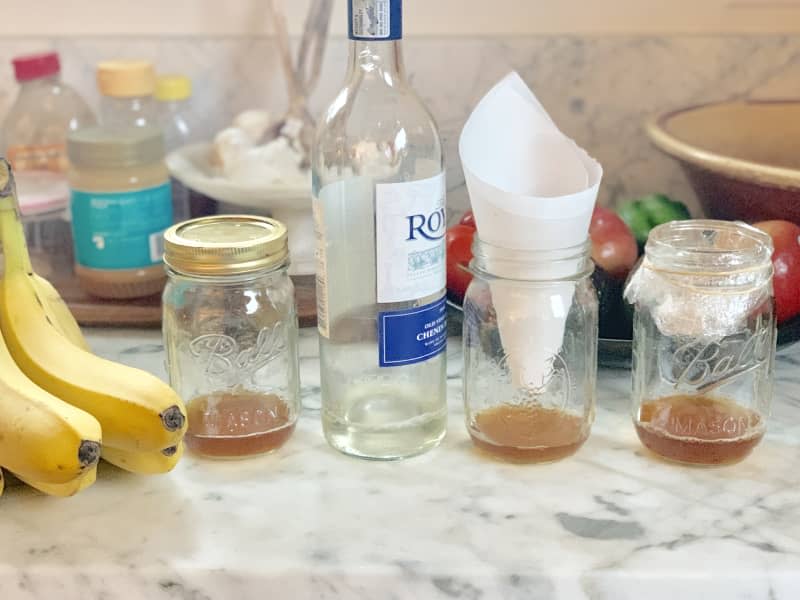
I don’t know about you, but there’s one thing I can consistently rely on this time of year: fruit flies in my kitchen. In my ever-present desire to eat more fruits and vegetables, I pile up big bowls full of tomatoes and peppers, bananas and apples. There are so many piles of
My past efforts at trapping and killing fruit flies have been half-hearted, as I didn’t really know which method worked best. So, I decided to run a semi-scientific test. Out of the homemade, DIY fruit fly trap methods, which was best? I set up four different tests, and to my surprise, one method stood out very clearly as the winner. (Full warning: In the spirit of really nailing this down and showing my work, I’m going to show you some drowned fruit flies.)
Table of Contents
Take a jar and punch a few tiny holes in the lid with a hammer and nail. Fill the jar with 1/4 cup of apple cider vinegar and a few drops of liquid dish soap. Leave it out and watch the fruit flies come flocking.
The DIY Fruit Fly Trap Methods
I used four classic DIY methods to trap (and kill!) fruit flies. Three involve Mason jars with different tops, and one is the super low-lift method of leaving the dregs of wine in a wine bottle out and available. The concept of each method is to leave an attractive, sweet-smelling bait out for the fruit flies near my fruit bowl, in a vessel that then traps and drowns them.
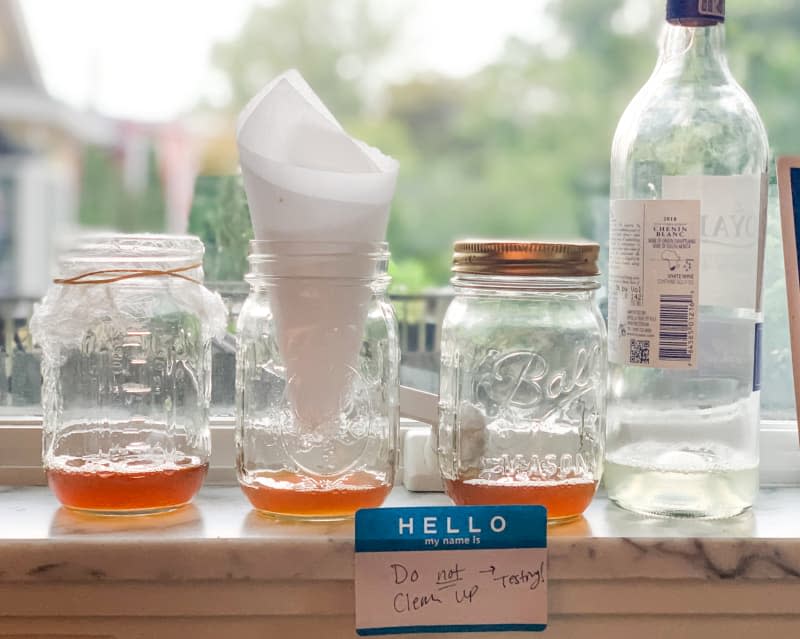
The Fruit Fly Bait
To keep this test even and fair, I used the same bait in each trap (aside from the wine bottle trap). I used about 1/4 cup of apple cider vinegar topped off with a few drops of liquid dish soap. The theory is that the vinegar smells irresistibly sweet to the flies, they fly into the traps, and then get their wings weighed down with the dish soap. For the wine bottle trap, I just added a few drops of liquid dish soap to the bit of wine in the bottom of the bottle.
Materials Used for the DIY Fruit Fly Traps
Glass jars (can be Mason or any other kind, only one method requires a lid)
Apple cider vinegar
Liquid dish soap
A near-empty wine bottle
Plastic wrap
Parchment paper
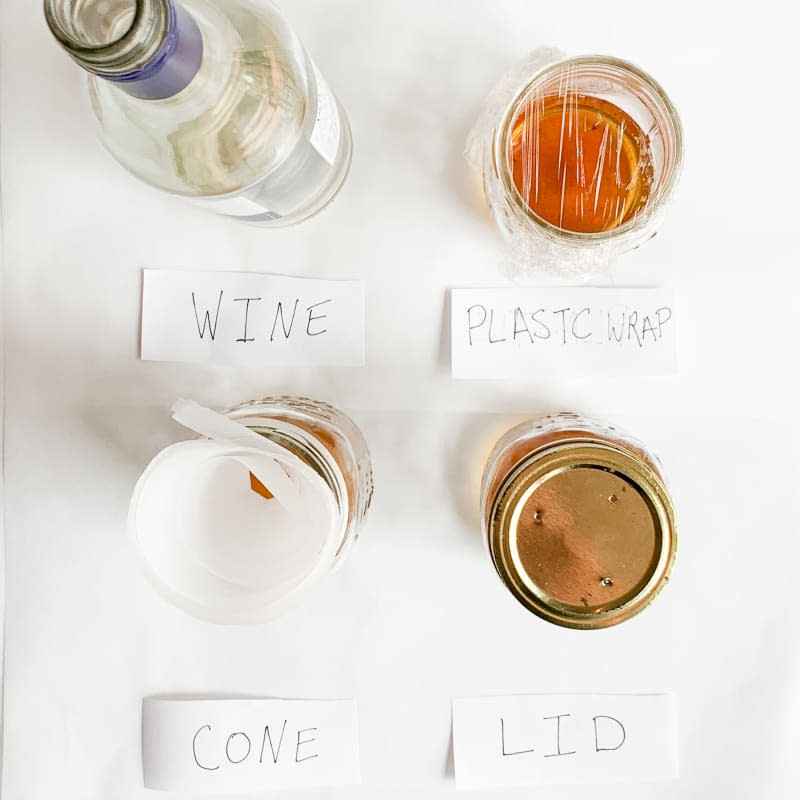
The Testing Criteria
I set up each of these methods on a Monday morning, then placed them side by side in the same place in my kitchen. I put them on a windowsill next to some ripening bananas and a few chunks of watermelon to really up the ante. I checked back in with each method on Friday afternoon to evaluate how many fruit flies they had each dispatched to its eternal rest. For each DIY fruit fly trap, I ranked them from 1 out of 10 (10 being the highest/best) in four areas: Ease, Attractiveness, Effectiveness, and Overall Rating.
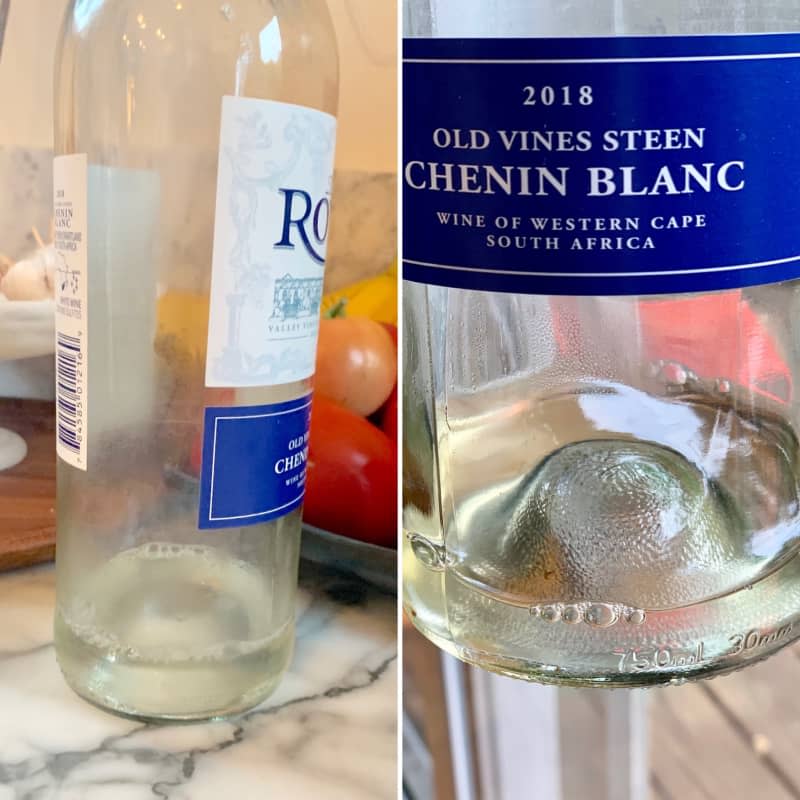
1. The Easiest (and Least Effective) DIY Fruit Fly Trap Method: The Wine Bottle
Ease: 9
Attractiveness: 4
Effectiveness: 2
Overall Rating: 5
Let’s start with the lowest lift: simply leaving the dregs of one’s wine out in a bottle with a little bit of dish soap. This has the advantage of really no advance preparation; just a little sacrifice of that last quarter glass of wine. I added a few squirts of dish soap.
Overall, this was not a very effective method. The wine bottle caught a few fruit flies, but it was four or five at most. I also didn’t like leaving a big, tall wine bottle out on the counter; it felt obtrusive and like it could be easily knocked over.
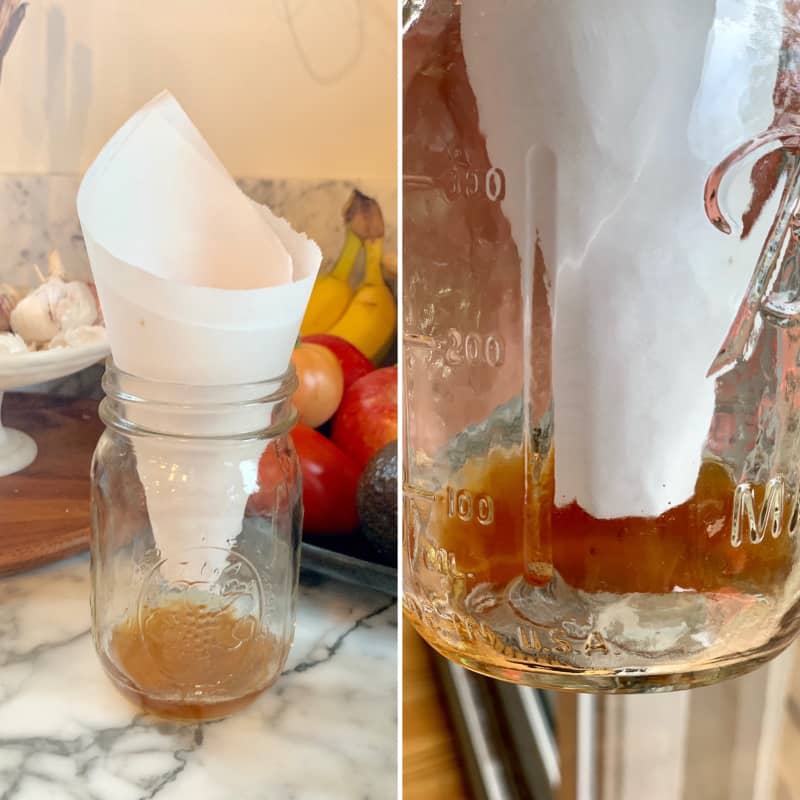
2. The Most Complicated DIY Fruit Fly Trap Method: The Paper Cone in a Jar
Ease: 2
Attractiveness: 5
Effectiveness: 5
Overall Rating: 4
The second method I tried used a classic Mason jar as the trap. (You can use a Mason jar or a cleaned-out spaghetti sauce or peanut butter jar. Any jar, really!) To trap the flies you roll a piece of parchment or plain paper into a cone and insert it into the top of the jar, with the bait (apple cider vinegar and a bit of dish soap) below.
The theory (I think) is that the cone amplifies the scent of the vinegar and then makes it hard for the flies to escape. Well, it was hard for me — maybe I’m just super uncoordinated and non-crafty, but rolling the cone was weirdly difficult? And then it didn’t even work; there were very few flies caught in this jar. I was hard-pressed to find even a few.
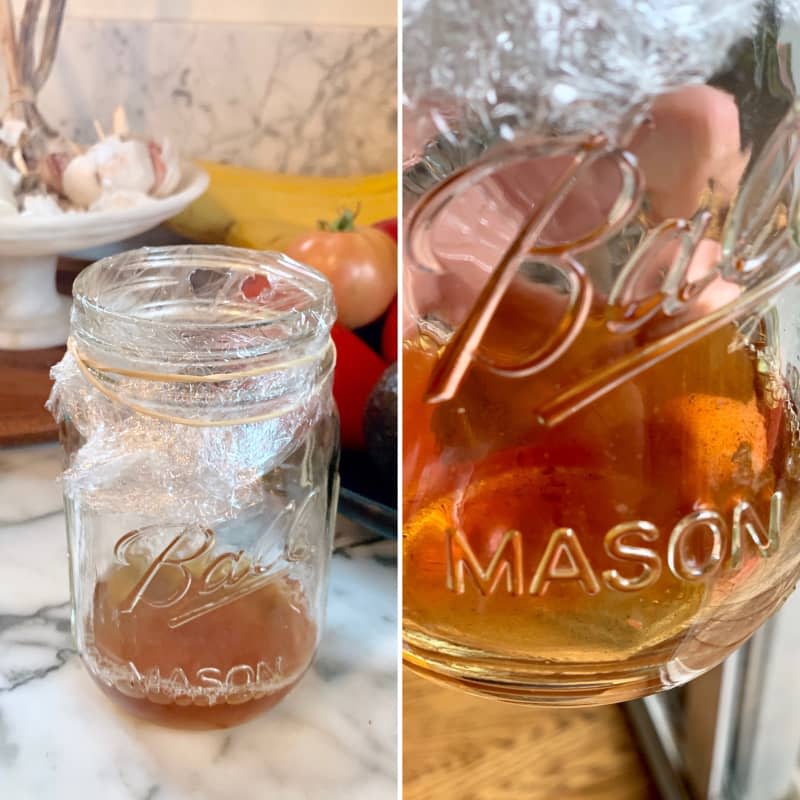
3. The Ugliest (and Weirdly Ineffective) DIY Fruit Fly Trap Method: The Plastic Wrap-Topped Jar
Ease: 9
Attractiveness: 1
Effectiveness: 5
Overall Rating: 5
The third method stuck with the jar but instead of topping with a weirdly difficult cone, you top the jar and bait with a cover of plastic wrap. I rubber-banded the plastic wrap on, then poked a few holes with a fork for the flies to get in and out.
To my surprise, there weren’t many flies in this trap when I went to check. Maybe eight to 10 swirling around. It’s possible that the holes I made were too big and they were able to get out, or that the plastic wrap interfered with the smell.
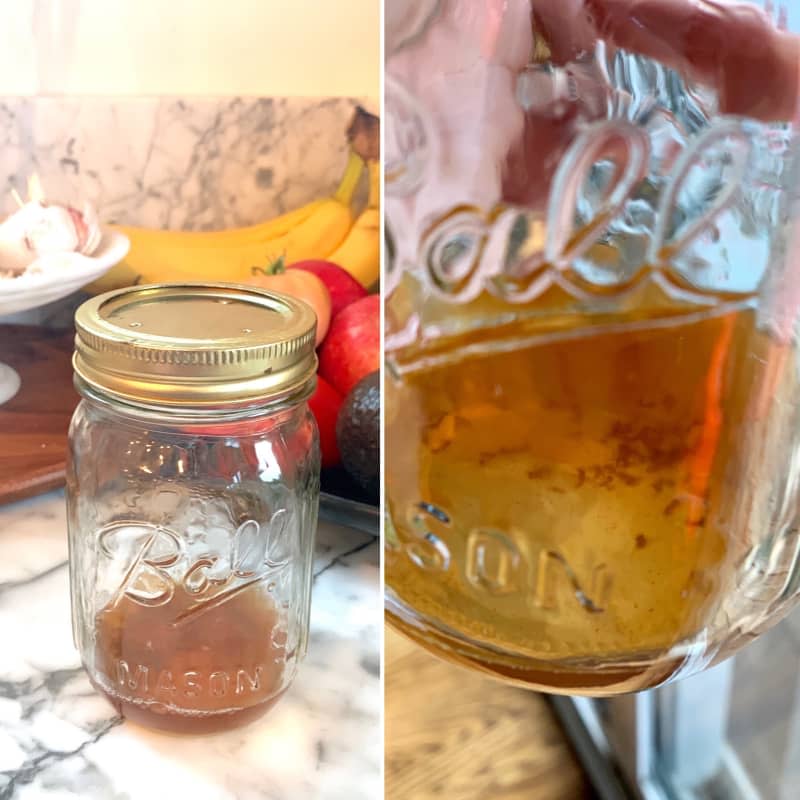
4. The Most Classic (and Our Winning) DIY Fruit Fly Trap Method: The Jar with Holes in the Lid
Ease: 8
Attractiveness: 6
Effectiveness: 10
Overall Rating: 8
To be honest, our final method (and our hands-down winner) was the one I was also most dubious about. In this method, you take a Mason jar and punch a few tiny holes in the lid with a hammer and nail. My husband did this for me and the holes seemed really small — way too small for flies to get in.
But I guess fruit flies are really tiny, because when I went to check this trap at the end of the week, it was FULL of dead flies. Seriously, at least 50 — I couldn’t count them all! (So gross, and so satisfying at the same time!)
This was also was the option I felt best about leaving out on my countertop, because the lid was screwed on tightly and even if I knocked it over, the tiny holes wouldn’t let much out. My next goal is to find an opaque or dark-glass jar so I don’t have to see those nasty little dead flies swimming around.
Between this and the other few tests, fruit flies have basically disappeared from my kitchen on these hot, sticky, fruit-filled August days, and you really can’t beat that for results. But — if all else fails, you can also buy these fruit fly repellent products.
OK, what did I miss? Is there some trap I should have tested? Do you have another DIY method you feel is more reliable? Tell us in the comments below!
This post originally appeared on The Kitchn. See it there: I Tried 4 Different DIY Fruit Fly Traps, and There Was a Clear Winner

